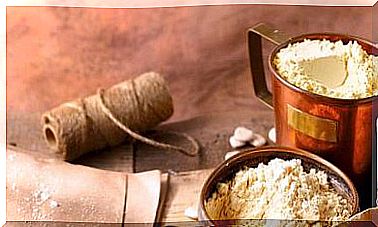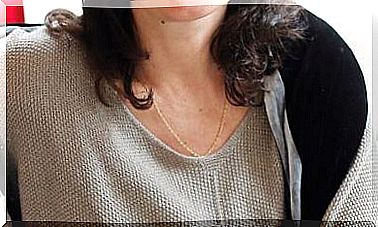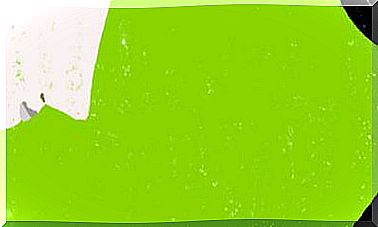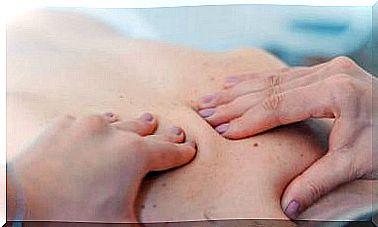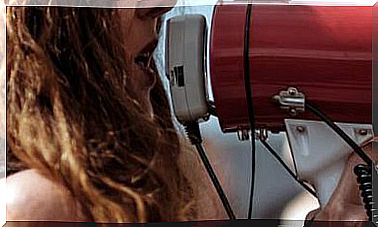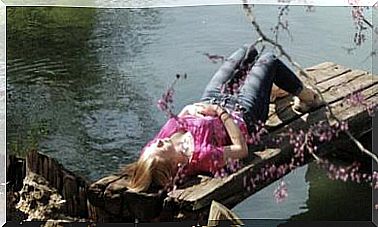What Addictions Hide
Addiction is a direct expression of our inner helpless child. It reflects our most infantile and immature aspects. It is the least “manageable” part of our psychic organization.

Addiction is the most invisible form of violence. It produces impressive havoc. We feel like babies unable to do something for us. We are possessed by an “other” who decides to do with our life what he wants. That “other” could be alcohol or running the office.
Just as our mother did what she wanted and what she could when we were babies and we had neither voice nor vote to decide our lives, now the substance to whom we give all the power of decision “does what it wants” with us. And it also appropriates the entire emotional territory, with “its” desire different from “our” desire, which is left, once again, with no place to exist.
Childhood: the origin of diction to the other
When we are babies, we come into the world expecting to find the same level of comfort that we have experienced in our mother’s womb; that is, permanent food, permanent shelter, permanent care, and permanent body contact. When we need to suckle, we need it now. The need appears from one second to the next and encompasses the totality of our being. We live through every need in the hope of obtaining comfort and calm without having to wait. Time hurts.
Babies are totally dependent on maternal care, so they deserve to get it right away.
On the other hand, as babies we do not perceive the external world, there is no “other”: there is only our own desire, the key to our survival, and a mother, who we live as an “extension” of our person, because she provides and calms our needs continuously.
Now, when as babies we do not get what we need (arms, warmth, exclusive gaze, permanent attention, body contact, milk, movement, words and constant presence), we despair. As we grow and try various strategies to obtain what we need, we become more and more voracious, while distrusting the abundance of love and care. We are losing hope of receiving breast milk or loving arms, but we settle for something to replace them.
It no longer matters what substance or food we incorporate, what matters is to introduce something, whatever it is, that calms us down.
Little by little, the very act of incorporating becomes paramount. We direct all our interest in devouring whatever it is, as quickly as possible, before it runs out and we feel the lack. But we will feel the same, because what we originally needed (the presence of mother) we have already forgotten, although it continues to operate in the depths of our being.
What does our inner child demand?
We usually ask for what we know adults are willing to offer; therefore, it depends on the family modality. We will ask for toys, food, juices, chocolates … and if they have a positive value for adults, they will offer them to us. At some point, adults become disoriented, because, even having obtained the chocolates, we are not satisfied. This happens because we have not been able to satisfy our original need, long forgotten.
As we grow, our false – and impossible to satisfy – needs will increase.
In our consumer society they become very difficult to identify, because we are all engaged in a system in which we believe that, to live, we need innumerable objects. When we are children and ask for love and presence, we get television or video games for hours. Nobody detects that something is wrong. Not when we feel that we cannot live without the objects we want.
In that instance, the explanation that adults find is that “we need limits” because we have “too much.” As children we may be inundated with toys, but we lack “mother”: we lack the most vital and priority in relation to the basic needs of a child. And we compensate for those basic needs by shifting them towards socially approved modalities.
The consumption of sugar, candy, artificial drinks, television and video games today organize the way in which young children get satisfaction.
As babies, we feel that we die without a maternal presence. If we choose addiction – the compulsive introduction of a substance or any object – as a survival mechanism, surely we can accommodate ourselves for the moment. When we reach adulthood, we perpetuate this way of bonding with objects or with others: we feel that, without incorporating a substance, we die. In these circumstances, whatever we consume becomes vital. And when a need arises, we feel the urge to satisfy it now. What does it remind us of? Well, we continue to function as if we were newborns, remaining in the same emotional state of absolute need.
When is it considered an addiction
When the incorporation of whatever becomes urgent, we speak of addiction: we are convinced that we need it, yes or yes, in order not to die. Some are easier to recognize, such as addiction to tobacco, alcohol, cocaine … Others are less detectable, such as addiction to food, sugar, coffee or psychotropic drugs. And others are even more invisible, such as addiction to social recognition, work, success, the Internet or the i-Phone.
The fact that some addictive substances are legal and others illegal does not make a difference when it comes to understanding what happens to us.
It is clear that we are an addictive society and that, at some point, we all deal with varying degrees of addiction. But it is also clear that addiction cannot be fought. It is not possible to fight against a primary need. And there is also no doubt that every addiction – that is, every desperate incorporation of a mother – seeks to make amends. Therefore, it would be very foolish, in addition to having run out of mother, to run out of cigarettes, struggling to bear the lack. It is not possible to continue fighting against our primary needs. We are helpless, even if we are 40 or 50 years old. For the soul that suffers, there is no age. Addictions always begin and are established from the original helplessness.
Addiction is a direct expression of our helpless inner child. It reflects our most infantile and immature aspects. It is the least “manageable” part of our psychic organization. The addictive mechanism delegates all decision-making power to something as ridiculous as a cake against which we lose our capacity for autonomy, as happened in front of the figure of our mother when she decided, acted, nurtured or punished without taking into account our most subtle needs.
At first, addictions can be complex to detect because many of them have positive evaluations, such as professional success, money or moderate alcohol consumption. Addictions are not recognized by the type of substance that we incorporate, nor by the amount or frequency of its consumption, but by the desperation we feel when the immediate need to introduce it appears. If we cannot live “without”, if the need hurts because there is emptiness, we know that we have not been sufficiently satisfied at the right time to obtain care, that is, when we were babies or young children.
The main problem in dealing with addictions is that we remain prisoners of childhood needs. We cannot discern that this is our primary emotional reality and that we find ourselves without tools to get out of the loop. Now it is essential that we understand that, we incorporate what we incorporate, we will no longer get Mom. That is ancient history, deserving of deep understanding and delicate work of regression and healing.
If we remember our childhood, perhaps we can name things being honest with our emotions and understanding the level of deprivation that we have suffered. Today we will no longer be able to obtain maternal care, but it is possible to heal ourselves through a full awareness of our emotional reality.
